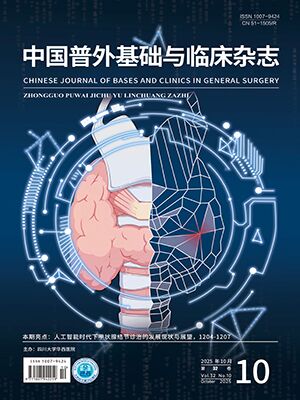Objective To investigate the reversal of the multidrug resistant gene mdr1 in vivo by antisense oligodeoxynucleotide (ASODN) on the basis of study in vitro.
Methods The cultured drug-resistant human hepatocellular carcinoma cells were injected under the skin of axilla to establish the tumor model of nude mice. mdr1 ASODN accompanied by Lipofectamine were injected locally and ADM was injected intraperitoneally. Control 1 and control 2 were locally injected by Lipofectamine and normal saline separately, and ADM was also injected intraperitoneally.
Results As time went on the tumor size increased and from the 5th day on alterations were marked, tumor size in different time phase showed marked difference to the prior time phase with significant difference (P<0.05). Tumor size in group ASODN was marked smaller than that of other 3 groups after the 5th day (P<0.05),while tumor size of group control 1,2 and group SODN in different phase showed no significant difference (P gt;0.05). The results suggested that SODN and Lipofectamine showed no marked effect on tumor growth of nude mice and ASODN had marked inhibition effect on tumor growth.
Conclusion mdr1 ASODN can also reverse multidrug resistance of drug-resistant human hepatocellular carcinoma cells in vivo. After the treatment the tumor’s growth in nude mice will slow down in a range of time.
Citation: LUO Huayou,YAN Lnan,YANG Jiayin,LIU Ziming,LIN Qiyuan. Reversal of Multidrug Resistance Gene mdr1 of Drug-Resistant Human Hepatocellular Carcinoma Cells with Antisense Oligodeoxynucleotide in Vivo. CHINESE JOURNAL OF BASES AND CLINICS IN GENERAL SURGERY, 2004, 11(2): 142-144. doi: Copy
Copyright © the editorial department of CHINESE JOURNAL OF BASES AND CLINICS IN GENERAL SURGERY of West China Medical Publisher. All rights reserved




